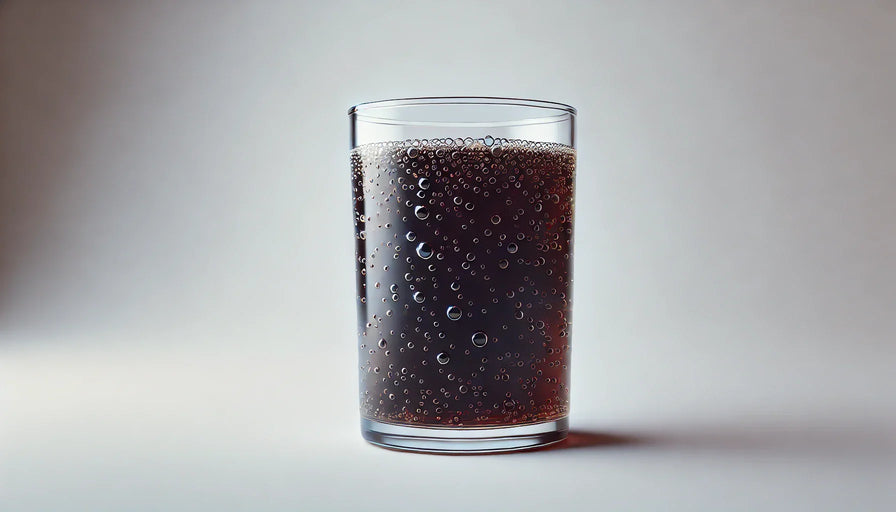
Mineral Water vs Spring Water: What's the Difference?

What's the difference between mineral water vs spring water?
Mineral water and spring water are differentiated by source and composition. Mineral water is sourced from mineral springs and contains various minerals and trace elements whereas spring water is collected from natural springs and is characterized by its purity.
Choosing between mineral water and spring water can be perplexing, given their distinct sources and attributes. As more people become health-conscious and particular about their hydration options, understanding the fundamental differences between these two types of water becomes essential.
This guide aims to unravel the specifics, helping you make an informed decision about which water best suits your needs and preferences, whether that's still water or sparkling water to everything in between.
Let's delve into the nuances that set mineral water and spring water apart.
Table of contents
What is spring water?
Spring water is sourced from natural springs, typically located in underground aquifers. It can be accessed through wells or by tapping directly into the spring.
Renowned for its purity, spring water undergoes natural filtration through layers of rock and soil, resulting in a clean and refreshing taste.
Additionally, spring water may contain various minerals and trace elements, depending on its origin. Unlike mineral water, however, the levels of these components are neither regulated nor consistent.

Mineral water compared to spring water
Mineral water is specifically sourced from mineral springs, typically deep underground, where water is naturally infused with a variety of minerals and trace elements.
These minerals, which typically include calcium, magnesium, and potassium, are dissolved naturally as the water moves through rock and soil, making the water rich in essential nutrients.
The composition of mineral water is consistent and regulated by standards in many countries to ensure it meets specific health criteria.
According to the FDA, for water to be considered mineral water, it must contain at least 250 parts per million (ppm) of total dissolved solids and originate from a protected underground water source.
Unlike spring water, which is valued for its purity and refreshing taste, mineral water is often sought after for its potential health benefits due to its mineral content.
Some mineral waters may be naturally carbonated or can have carbonation added before bottling making it diverse and a part of the carbonated beverage family compared to the typically still spring water.
If you're interested in learning more on carbonated waters, check out aerated water!
Related Read: What's the difference between mineral water vs sparkling water?

Still water vs spring water
When comparing still water to spring water, several key differences arise that can influence your choice.
Still water, often sourced from municipal or purified sources, typically undergoes rigorous treatment processes to remove impurities and contaminants, resulting in a neutral taste profile.
In contrast, spring water is prized for its natural origin and can maintain minerals depending on its source, contributing unique flavor characteristics that differ from batch to batch.
Additionally, while still water may lack notable mineral content, spring water may provide essential minerals that can benefit hydration and overall health.
Ingredients in spring water and mineral water
Spring water ingredients
Wondering if spring water has minerals is a fair question to ask. The answer is simple: yes! Spring water can contain a variety of naturally occurring ingredients, including minerals.
Some minerals found in spring water include:
- Calcium
- Magnesium
- Potassium
- Sodium
Although spring water does have minerals, the types and amounts can vary widely depending on the geological characteristics of the source. Unlike mineral water, the mineral content in spring water is not regulated, so it is not consistent across different brands and sources.

Mineral water ingredients
Mineral water contains a variety of naturally occurring minerals and trace elements.
Some of the commonly found ingredients include:
- Calcium
- Magnesium
- Potassium
- Sodium
- Bicarbonate
- Sulfate
- Chloride
- Silica
- Iron
- Zinc
The exact composition and concentration of these minerals can vary according to the source of the mineral water. However, unlike spring water, the mineral content in mineral water is regulated to meet specific standards, ensuring consistency and beneficial health effects.
Related read: The Differences Between Mineral water and Tap Water

Common questions
Is spring water good for you?
Yes, spring water is generally beneficial. It is often considered among the purest forms of water due to its natural filtration process. As spring water traverses layers of rock and soil, it absorbs minerals like calcium, magnesium, and potassium, which offer nutritional advantages.
Additionally, this natural purification process removes many contaminants, yielding clean and refreshing water.
However, it's important to note that the mineral content of spring water can vary by source and is not regulated to the same extent as mineral water. Therefore, while spring water can provide health benefits, the specific nutrients you receive may differ between brands and sources.
Related read: Is Soda Water Bad for You?
Is there such a thing as spring mineral water?
Yes, there is such a thing as spring mineral water. This type of water is essentially a blend of the two categories, as it is sourced from natural springs and contains a significant amount of naturally occurring minerals.
The distinction lies in the way the water is collected and its mineral content; for it to be classified as mineral water, it must contain at least 250 parts per million (ppm) of total dissolved solids and originate from a protected underground water source, as mandated by the FDA.
Spring mineral water, therefore, combines the purity of spring water with the health benefits of essential minerals, making it both refreshing and nutritious.

Is spring water distilled?
No, spring water is not distilled.
Distillation is a process that involves boiling water and then condensing the steam back into liquid form to remove impurities and contaminants.
Spring water, on the other hand, is collected directly from natural springs and undergoes a natural filtration process as it moves through layers of rock and soil. This natural filtration helps to remove many contaminants but retains the natural minerals present in the water.
As a result, spring water maintains its mineral content and natural taste, which would be lost if it were to be distilled.
Related read: What is Alkaline Water?
Summary
In essence, both spring water and mineral water offer unique benefits and characteristics, making them valuable sources of hydration.
Spring water is prized for its natural purity and refreshing taste, achieved through its natural filtration process. It contains varying levels of minerals from its geological source but is not regulated for mineral content.
On the other hand, mineral water is sourced from mineral-rich springs and contains a consistent and regulated amount of essential minerals, which can offer additional health benefits.
Understanding the differences and advantages of each can help consumers make informed choices based on their preferences and nutritional needs.
Recommended reading

How to Give Back During Thanksgiving 2025
Key takeaways Thanksgiving is a time to express gratitude and share with those in need. From volunteering at local shelters to donating food and essentials, there are numerous ways to give back to...

What Does Carbonation Do to Your Body?
What does carbonation do to your body? Carbonation alone typically has minimal effects; however, it can cause bloating and discomfort for some, and it may worsen acid reflux due to carbon dioxide ...

What Are the Health Benefits of Sparkling Water?
Summary Sparkling water isn't just a refreshing drink—it comes with surprising health benefits too. From aiding digestion to improving hydration, discover how sparkling water can be a healthy addi...